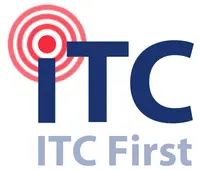- FREEPHONE 0800 781 0379 / 0161 250 1616
- info@firstaidforall.uk
- Basket [0]
Energy Drinks - risks and information for parents
- News Blog Home /
- Article
There’s been a lot of hype in the press recently around energy drinks. Stories of people going to crazy lengths to get their hands on the latest brand, travelling over 200 miles and paying well over the odds just to get their hands on a bottle. It is clever marketing for sure, but there is a serious issue around children’s health that parents need to be aware of.
Government research suggests two-thirds of children aged 10 to 17 are known to consume energy drinks, as are a quarter of six- to nine-year-olds but at what cost to their health? The government has completed a public consultation and has set guidelines that these drinks are not recommended for children. Many major supermarkets have decided not to sell to under 16s, however, it is still legal to sell these drinks to under 16s, and many retailers still do.
What are energy drinks?
Energy drinks are soft drinks that contain high levels of sugar and caffeine. They also contain stimulants such as guarana and taurine which adds to the level of caffeine. These drinks claim to boost energy and improve concentration. The feeling of energy from these drinks comes from the high levels of sugar and caffeine, users will experience a short lived ‘sugar high’ followed by a ‘sugar crash’. This can leave users feeling unable to concentrate, drowsy and irritable. Teenagers often feel tired and low on energy especially in the morning so it’s easy to see why energy drinks are sometimes drunk on the way to school instead of having breakfast.Information for parents
The two most significant ingredients in energy drinks are sugar and caffeine, with others being taurine and guarana all of which if regularly consumed can cause harm.The risks
Increased caffeine consumption in children and adolescents results in increased blood pressure, sleep disturbances, headache, dehydration, hyperactivity and stomach aches. Too much sugar causes dental issues, stress, and obesity and can lead to type 2 diabetes. Guarana and taurine are stimulants that can cause anxiety, sleep problems and irregular heartbeat.Positive actions
• Encourage more sleep and try to avoid activity that stimulates the brain before bed, such as playing computer games. • Avoid fizzy or caffeine drinks before going to sleep. • Eating a healthier diet, try wholegrain cereals and fruit for breakfast. • Encourage physical activity, exercise helps sleep because a tired mind will sleep better if the body is tired too. • Water is the healthiest and cheapest choice for quenching thirst. Try adding some no-added-sugar squash or fruit juice for flavour.
Author: S Brown-Kenna
Published: 02 Feb 2023
Contact via email at: info@firstaidforall.uk for more information.
Weekly first aid tips and updates: Follow @Firstaidforall
Popular Courses
Paediatric First Aid Course
From:
£85
+VAT
Outdoor & Forest School First Aid Course
From:
£169
+VAT
Emergency Paediatric First Aid Course
From:
£79
+VAT
Emergency First Aid at Work Training
£445
+VAT
Paediatric First Aid Training
£495
+VAT
12 people
1 Day Onsite + Online Learning
Onsite First Aid Training
Blended
Client Feedback
"A great course and a great trainer who was friendly and knowledgeable...."
Miss R Roberts 02/Feb/2026
![]() Training Industry Body Approved:
Training Industry Body Approved:
TIB 3130









Ofqual First Aid Courses ITC


Caroline House, 146 Audenshaw Road, Audenshaw, Manchester, M34 5HQ, UK
01612501616
info@firstaidforall.uk
Company Number: 06996015
VAT Number: GB182586379
©2026 All Rights Reserved.
